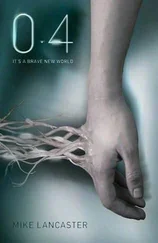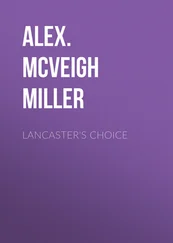Sheila Renfro points at a small, tidy, brown stucco house on Fourth Street.
“My parents lived there while the motel was being built,” she says.
“It’s nice.”
“Yeah. I like to walk past it and think of what their life must have been like at that time, before I came along. They never talked much about those days, so it’s left to my imagination.”
Up ahead, on the corner, she points out Cheyenne Wells High School, her alma mater. She says she doesn’t have much school spirit, and I understand completely. I went to Billings West High School, and aside from Mr. Withers, who was my wood shop teacher there before he became my boss at the newspaper years later, I didn’t have any friends.
“We had a fifteen-year reunion a couple of years ago. Some of the people who moved away came back and stayed in my motel and had parties. It took me a week to clean it all up,” she says.
“People can be really rude,” I say.
“Amen to that. Well, come on, Edward. Let’s head back.”
She offers her hand for me to hold.
“Just as friends,” she says.
I take her hand in mine and off we go, the way we came.
— • —
I’m watching daytime TV—some kind of reality-style, in-the-courtroom show—when the in-room telephone rings, startling me.
I pick it up, and before I can say hello, Sheila Renfro’s voice is in my ear, urgent.
“You’d better come up here,” she says.
I turn off the TV and push myself off the bed with little pain, just a twinge (I love the word “twinge”).
As I step into the hallway, I can see that someone is at the front desk, but she—the shape looks like a she—is leaning over the ledge and I cannot see her face.
Then I hear the voice and I know.
“Mother?”
My mother faces me. Her appearance, as always, is immaculate. She is clearly not happy to be here. This signal is unmistakable in her face and in her voice when she speaks.
“Get your things. I’m taking you home.”
“But—”
“Your things, Edward. I have your car. We’re going back to Billings today, you and me.”
“But—”
“Now.”
Hers is the voice of finality. I’ve heard it before. It’s the voice she used to tell Jay L. Lamb that he was never to contact me again without her approval.
I walk back down the hall toward room number four. Behind me, Sheila Renfro’s voice is saying, “I was going to take him to Denver tomorrow. You didn’t—”
“I don’t want to hear it,” my mother replies.
I open the door to my room and get inside so I don’t have to listen to anything else.
— • —
I need two trips to get everything to the car. I still have six water bottles left from the case I started with.
“Do you want these?” I ask Sheila Renfro.
“I guess.”
She walks with me to the car. My mother is standing in the door frame, one foot on the floorboard, the other on the asphalt.
“I guess I’m leaving now,” I tell Sheila Renfro.
“I guess.”
“I’m sorry we got only part of today together.”
Sheila Renfro is tearing up. I hate that.
“Me, too,” she says.
“Edward…” my mother implores.
Sheila Renfro reaches around my neck and pulls herself in tight to me. My mother begins to say something, and I hold out my left hand, and she stops.
Sheila Renfro lets me go. I ease into the passenger seat of my new Cadillac, and my mother also gets in. I look out the window at Sheila, her eyes all red-rimmed and translucent (I love the word “translucent,” but I hate it right now), and I put my hand against the glass.
My mother backs out of the parking space and turns toward the highway. I watch in my side-view mirror, and Sheila Renfro follows us for a few steps until we’re on the highway and my mother steps on the gas.
In 6.8 seconds, I can’t see Sheila Renfro anymore.
— • —
We’re nearly to Limon before my mother says anything. For miles, we have been glancing at each other, sometimes opening our mouths, but no words have come. When the silence ends, it’s as if someone has pumped oxygen back into the car.
“I was worried about you,” she says.
“I was all right.”
“It’s just… you know, the whole trip seemed like it was turning into a disaster. You’ve been doing so well. I didn’t want you to land in any trouble.”
I am flummoxed by my mother’s assessment of how I’m doing. It’s been a shitburger of a year. I haven’t been doing well for weeks. For months. But I was doing fine with Sheila Renfro.
“I wasn’t in any trouble.”
“That woman, she’s trouble.”
“No, Mother, she’s not.”
She says nothing to this, and I’m not going to explain it. I remember what Dr. Buckley said about how people make up their mind about things by processing information through their biases and experiences. I will not idly accept my mother’s pronouncements about Sheila Renfro, but neither can I force her to see things my way.
“You were going home anyway,” she says.
“Yes.”
“So it doesn’t matter if it’s a day early.”
“If it makes you feel better to think so.”
My mother’s face scrunches up.
“You look like you’ve lost weight.”
“I was in a bad car wreck, Mother.”
She holds tight to the steering wheel up top with both hands.
“I’m trying to talk to you, Son.”
“I know,” I say. “I don’t feel like talking.”
I plug my bitchin’ iPhone into the adaptor and turn the receiver on. I shuffle the songs. Michael Stipe begins to sing about how he found a way to make someone smile.
I turn my body to the right. My ribs scream. I face the window. I don’t want my mother to see me like this.
— • —
We eat dinner at Hathaway’s restaurant in the Little America Hotel near Cheyenne, Wyoming. I’ve slept most of the way—a fitful, in-and-out sleep during which I lurch awake and take in the passing landscape before drifting off again. Now I pick at my roasted chicken and I try to bring myself out of my stupor.
“You’re not mad at me, are you?” my mother asks.
I learned from Dr. Buckley that this is a passive-aggressive question. My mother knows that I should be and am angry with her. She knows she overstepped her boundaries. Now she’s asking me to tell her it was OK.
“You shouldn’t have done what you did,” I say.
“You needed my help.”
Now my mother is bargaining.
“No, I didn’t. I had the situation under control.”
“I still say it doesn’t really matter because you were going home anyway and now we get to spend some time together.”
My mother is still bargaining.
I don’t say anything.
“What’s wrong? It seems like there’s something you’re not telling me,” she says.
I rub my eyes with the heels of my hands.
“I don’t have a job anymore. My best friends are gone. I have type two diabetes—”
“You have diabetes?”
“Yes, I told you that.”
“No, you didn’t.”
“I didn’t?”
“No. When did you find out?”
“Dr. Rex Helton told me on December eighth.”
“What are you doing about it?”
“I’m eating roasted chicken and vegetables,” I say, passing my hand over my plate.
“How can I know what’s going on in your life if you don’t tell me, Edward?”
“How can you pretend to know if you don’t ask?”
This is probably the most acidic (I love the word “acidic”) thing I have ever said to my mother, and instantly I wish I hadn’t.
Her mouth puckers up like a chicken’s asshole.
“Let’s just eat,” she says.
Читать дальше












![Edward Ellis - Adrift on the Pacific - A Boys [sic] Story of the Sea and its Perils](/books/753342/edward-ellis-adrift-on-the-pacific-a-boys-sic-s-thumb.webp)